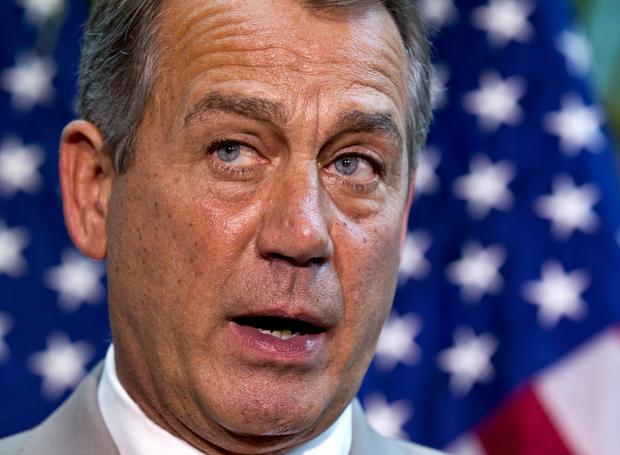Congress tentatively reaches student loan deal
Updated at 3:20 p.m. ET
(CBS News) After trading barbs for months over efforts to keep student loan interest rates low, Democrats and Republicans have tentatively reached a deal to extend the current rates, CBS News confirms. The Republican-led House could vote on a new version of the bill as soon as Friday, a source tells CBS News.
If Congress doesn't act by July 1, the interest rate on new subsidized Federal Direct Stafford Loans for undergraduate students will double from 3.4 percent to 6.8 percent. Both Democrats and Republicans (with some exceptions) have agreed Congress should extend the low rates, but they've been arguing for months over how to pay for the $6 billion extension.
Now it appears the two sides have reached an agreement at the eleventh hour for a one-year extension that would be paid for by limiting companies' tax breaks for pension payments and limiting federal subsidies of student loans.
Congress is also close to reaching a two-year extension of a transportation spending bill. The compromise package being finalized is expected to include significant spending and regulatory reforms to satisfy House Republicans. For instance, there will be no increase in transportation funding as Democrats wanted, the bill gives states more flexibility to opt out of requirements for federal transportation funds and it ensures that funds are spent on high-priority infrastructure projects that support economic activity, rather than bike paths and beautification efforts.
"A lot of work has gone into this, it's not finished yet," House Speaker John Boehner said Wednesday morning.
Senate Majority Leader Harry Reid also suggested Tuesday that Congress was close to an agreement.
The transportation bill had been held up by disagreements over authorization of the Keystone XL pipeline, but this latest agreement is not expected to include language to approve the pipeline or force the president's hand on the issue.
The GOP-led House passed a bill to extend the low student loan interest rate earlier, but Democrats -- including President Obama -- opposed it because it paid for the $6 billion price tag by repealing the Prevention and Public Health Fund, which would provide for hundreds of thousands of screenings for breast and cervical cancer. Democrats in the Senate filibustered that version of the bill, while Senate Republicans blocked a Democratic version. The Senate Democrats' bill would have required some privately-owned companies to pay higher payroll taxes for Social Security and Medicare.
